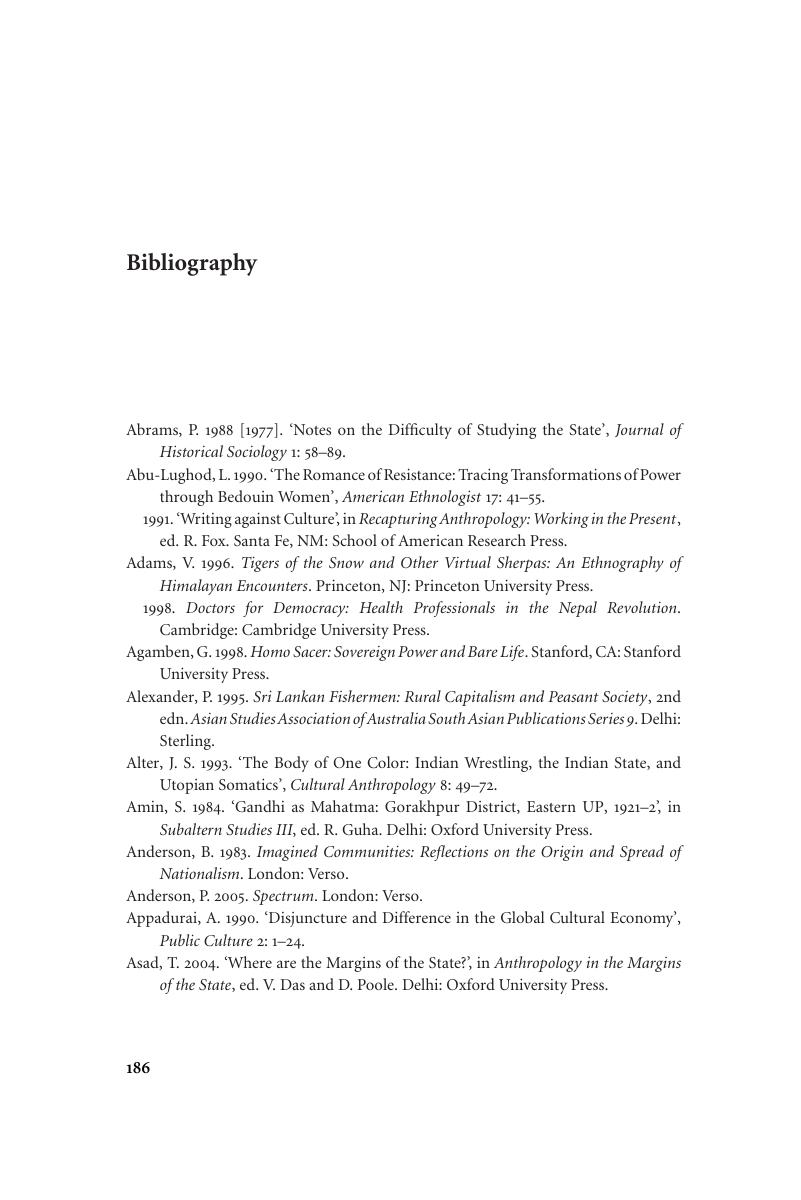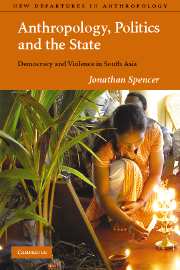Book contents
- Frontmatter
- Contents
- List of illustrations
- Acknowledgements
- 1 The Strange Death of Political Anthropology
- 2 Locating the Political
- 3 Culture, Nation, and Misery
- 4 Performing Democracy
- 5 States and Persons
- 6 The State and Violence
- 7 Pluralism in Theory, Pluralism in Practice
- 8 Politics and Counter-politics
- Bibliography
- Index
- References
Bibliography
Published online by Cambridge University Press: 05 June 2012
- Frontmatter
- Contents
- List of illustrations
- Acknowledgements
- 1 The Strange Death of Political Anthropology
- 2 Locating the Political
- 3 Culture, Nation, and Misery
- 4 Performing Democracy
- 5 States and Persons
- 6 The State and Violence
- 7 Pluralism in Theory, Pluralism in Practice
- 8 Politics and Counter-politics
- Bibliography
- Index
- References
Summary

- Type
- Chapter
- Information
- Anthropology, Politics, and the StateDemocracy and Violence in South Asia, pp. 186 - 199Publisher: Cambridge University PressPrint publication year: 2007

